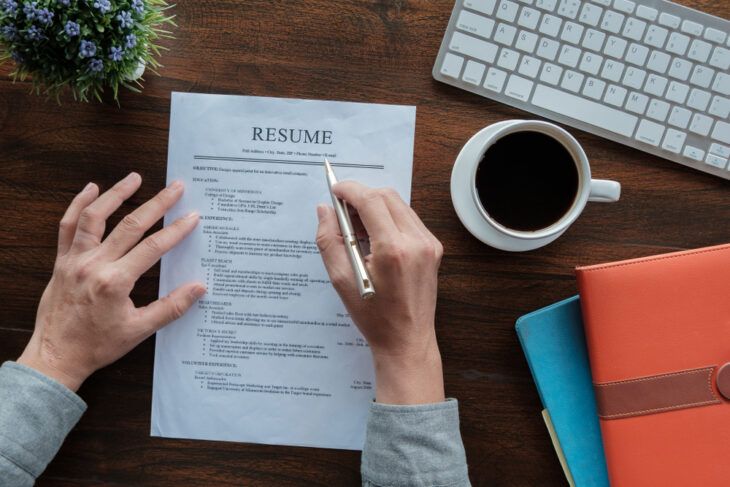Many people will tell you that you can’t really time the housing market. However, I can tell you that buying our home last year at the onset of the pandemic was one of the worst times. Dealing with the limbo period known as escrow – the waiting period while the buyer’s money is held by a trusted third party before it’s paid to the seller – in that uncertain state of the world was extremely stressful.
We can laugh about it now, since things all worked out eventually. However, there was nothing funny (at the time) about hearing how the global economy was shutting down while we were making the biggest purchase of our lives. We almost backed out multiple times, scared of the uncertainties. Luckily, we hung in there to finally close on our new family home.
Thankfully, it wasn’t the first time we bought a home. At least we had some previous experience in the process. Otherwise, not knowing what to do (and how to avoid all the landmines) might have pushed us over the edge and caused as to walk away from the deal. We would have missed out on buying a beautiful home, which we then used to ride out the lockdown.
Are you a first-time home buyer and not really sure what to expect from escrow? Here’s a list of dos and don’ts you should know about.
13. Ask For An Outline of the Entire Process
A good realtor will guide you through this process. However, my experience is that no one will tell you what to expect unless you specifically ask them about what is happening. It’s not that realtors can’t be bothered to explain it. It’s just that they are so used to the process as part of their every day duties that is often seems too obvious to warrant an explanation. But they will explain it, if you make a point to ask.
As a first-time homebuyer, it really helps to get an outline of the whole escrow process. Escrows are typically a 30 day period, but can be more or less on occasion. It can be helpful to draw yourself a timeline of the entire month. That way, you know what is coming (and when), so you won’t be surprised by anything. You’ll also want to know exactly what is expected of you. If you need to deliver funds or documents (or anything else) by a certain date to ensure the escrow process completes, make sure you do. You certainly don’t want to schedule a vacation or only have limited availability during your escrow period. You want to be on hand to make sure everything is buttoned up neatly. The third party holds the funds or assets until both parties have fulfilled contractual duties.
12. Be Flexible With Scheduling
Here’s why you want to be completely available during escrow. For instance, you’ll want to be there when the home inspector does the walk through. It’s always better to hear firsthand what they might find about the property that needs addressing. This is also a great time to ask questions about maintenance tips and schedules. It’s not the home inspector’s job to explain everything to you, of course. However, it doesn’t hurt to get a second opinion on how everything should be maintained once you move in.
You also want to be available to address anything the inspector finds. Do you want the seller to fix any issues? Or is it acceptable to you to just get a financial credit so you can get it taken care of yourself after you get the keys? These issues can sound minor during the escrow phase. The agents representing both sides may just want to smooth things over and close on the property as quick as possible. However, figuring out what’s best for you over the long run can mean the difference of it being a non-issue and you tearing your hair out after it becomes your problem. Don’t take this lightly.
11. Be Flexible With Demands
Speaking of repairs, it pays to be more flexible. I know this is your first home. You want everything to be perfect. But remember that everything in a house wears down over the years. There’s bound to be some stuff that’s not perfect. So, think carefully before you ask the seller to fix everything. It could delay closing or even scuttle the whole deal (in rare cases). Can you easily just fix it yourself?
Are you planning any remodel work that will take care of whatever needs addressing anyway? If a faucet is leaking but you plan to remodel the bathroom, you might as well ask for a credit for the repair instead of insisting that the seller replaces the hardware before closing. That way, the seller doesn’t have to pay top dollar to get someone to rush over to address the issue and you get more cash for your new bathroom. That’s a win-win.
10. Look Through the Escrow Estimates
Make sure you understand every line item that’s in the estimate and what you are charged for. If you need clarification, then ask the escrow officer immediately. You’ll be able to double-check the math, which you definitely should. More importantly, you should double-check line items such as sales commissions to the agent, credits from the sellers, and miscellaneous charges from every party. These can sometimes be negotiated off.
When we bought our home, the escrow company put in all kinds of charges. There was a notary charge and mailing fees — totaling hundreds of dollars — even though the entire process was done electronically. I obviously questioned these fees, and they were quickly dropped. However, you can bet that they would have happily taken my money if I didn’t bother to look closely. I’m sure lots of people just sign their paperwork without a second thought.
9. Read Everything Thoroughly and Sign Everything ASAP
There are a few reasons why you should look through everything as soon as possible. First, you want to make sure you understand everything in the escrow process. Then make sure to ask about anything that doesn’t make sense.
Second, you want to read them while the details are still fresh on your mind. There will be plenty of services that you pay for. If you don’t even remember ordering those services, then it’ll just take you longer to untangle all the complexity.
Third, escrows are delayed all the time. It’s often the result of procrastination and people not getting their act together on time. Unfortunately, most of the time it’s the buyer’s side that causes the delay because of funding issues. If you get into a habit of looking over everything first thing, you reduce the chances that you are the cause of any holdup.
8. Learn How to Use DocuSign
These days, I will honestly refuse to work with an agent who still doesn’t use DocuSign. One of the tiny benefits of the pandemic is that many industries finally realized more things can be done electronically, including obtaining legally binding signatures. When I bought my very first house, I remember having to sign over 100 pages of documents at the escrow office. I didn’t even really have a chance to read everything over. I just had to trust that no one was trying to scam me in any way.
Sure, I could stop everything and requested time to read the documents thoroughly before I signed. However, it would have been a massive to delay to everyone’s schedule. I also could have delayed the closing of escrow too, to take the properly vet the paperwork. Again, though, I didn’t want to be the one causing any holdups. Luckily, nothing bad happened in this case. These days, though, getting electronic copies to sign means having more time to read before you sign. It’s not like you’re limited to a one-hour meeting window in someone’s office.
The Docusign process is really easy for technology literate people. Even if you’re not great with computers, it’s easy to sign up and learn quickly. Just be careful to not blindly click all the “sign here” buttons too fast. They are still legally binding documents, so make sure you read them first. Finally, you could download a copy of everything you sign. Docusign (or similar electronic signing platforms) will probably email you a copy too. You can find a record of everything you ever signed in your online account, too. Even still, you should save a copy to your own hard drive (and even consider printing a paper copy for your filing cabinet or safe).
7. Speed Up the Mortgage Approval Process
Remember how I said that most of the delays are related to funding issues? Well, part of the problem is that applying for a mortgage takes time. You have to commit to a mortgage servicer, provide all the required documents, and then wait to hear back. This process can take weeks (and even months). Sometimes the lender will come back and ask for additional supporting documents before they make their final decision to approve you or not. Then your potential new loan moves to another department, who double checks the entire process. Finally, your mortgage application is sent to the funding department, who will take another few business days to fund the escrow account.
If you were the only customer going through the process (and they are a small company), then everything could theoretically be done really quickly. Unfortunately, this is hardly ever the case. Sometimes you have to wait on the company, and sometimes they are waiting on you to provide the requested documents or information they need. If you want to make sure your property closes on time, make sure you follow up regularly. You don’t want the mortgage company to be waiting on you for anything. If you aren’t on top of this process, then expect delays.
6. Double and Triple Check the Wire Transfer Information
The mortgage company will take care of funding the loan. However, you may be required to wire the down payment to the escrow account yourself. Some escrow companies just send you an email with the information. However, it’s always worth taking the time to double-check with them by calling or even visiting their office.
We are talking about quite a bit of money here. If you send the funds to the wrong account, then there’s a chance your money is gone forever. Make absolutely sure that all the account and routing numbers are correct. Make sure the money goes to the right place.
5. Have Your Funds Ready
It can be tempting to move your funds around, trying to earn more yield than your standard checking account provides. But honestly, don’t do this. A few extra days of interest really isn’t going to amount to much. Plus it can create extra problems that could stall — or ruin — the purchase of your new house.
Moving large amounts of money in and out of different accounts will raise suspicious. Your mortgage lender (or underwriter) may start asking for updated account statements to ensure you have the full amount of the down payment. They will want to ensure you’re not merely trying to create an illusion that you can afford this house. During escrow, just keep the funds ready and where they belong. Resist the temptation to try and squeeze out some extra returns while that large chunk of money is in your hands.
4. Don’t Move Large Sums of Money Around
For similar reasons, avoid trying to move large sums of money around accounts during the whole mortgage process. Underwriters want to not only see that you have enough money to put down on the home, but also a cushion to weather any financial accidents. Let’s be clear, here. They are going to expect that you keep paying for the mortgage even if you encounter financial difficulties, like unexpected job loss or medical issues.
If they see that you are moving large sums of money around the accounts that they requested account statements for, they’ll have to trace the origins of those funds and figure out what you are up to. The best case is that they take days to untangle the mess. The worst is that they simply deny your loan even though they conditionally approved it.
3. Be Careful Before Changing Jobs
Similarly, changing jobs is going to raise a red flag at the mortgage servicer. At the very least, they will have to re-evaluate your ability to bring home income if you change jobs in the middle of this process.
If you are simply changing from a salaried position to a salaried position with higher pay, then there likely won’t be any problems. Just make sure you keep everyone (real estate agent, mortgage broker, escrow agent) informed ahead of time. However, if you’re switching to something hourly, part-time, or with commission-based income, it could land you in trouble. Even if the commissions would potentially net you a higher income than your previous job, your mortgage lender may not consider it guaranteed income. They might only give you credit for your base pay, which could result in your income being less on your mortgage application. That’s bad.
Another move that can danger your mortgage application approval is if you go from a W2 employee to become a contractor that gets 1099 forms. You may get a huge jump in compensation with such a move. However, it’s best to wait until you close on the house before giving up your W2 paycheck.
2. Avoid Opening Credit Accounts
Finally, it’s imperative that you don’t open any new loans or lines of credits while you are in escrow. This may seem obvious, but far too many people have gotten their mortgage denied midway during the escrow process because they decided to get a new car (and therefore a new car loan). Remember that borrowing more means raising your payment obligations. That affects your ability to service your home debt.
This applies to credit cards too. I know you’re probably thinking about your finances quite a bit more than usual during the escrow period. You may realize that it’s time to switch to a more generous rewards credit card. But honestly, just hold off for a bit. Write down any of these new ideas, but don’t make the changes until after you’re fully settled in your new place. The new car or credit car can wait another few weeks.
1. The Bottom Line
Congratulations! Buying your first home is a wonderful time of your life. However, it can also create unbelievable anxiety. After all, a house is probably the most expensive commitment you’ve agreed to (by a mile). That 30-day escrow period can feel like forever.
That’s why it’s important for you to learn everything about the process and know exactly what you can expect during these roughly four weeks of your life. With knowledge in hand, you can anticipate issues before they happen by working with the realtor and mortgage originator so the escrow process can go smoothly. Sure, you can rely on them to do their job on their own, but no one cares about closing more than you do. Why leave something this important up to chance?





















